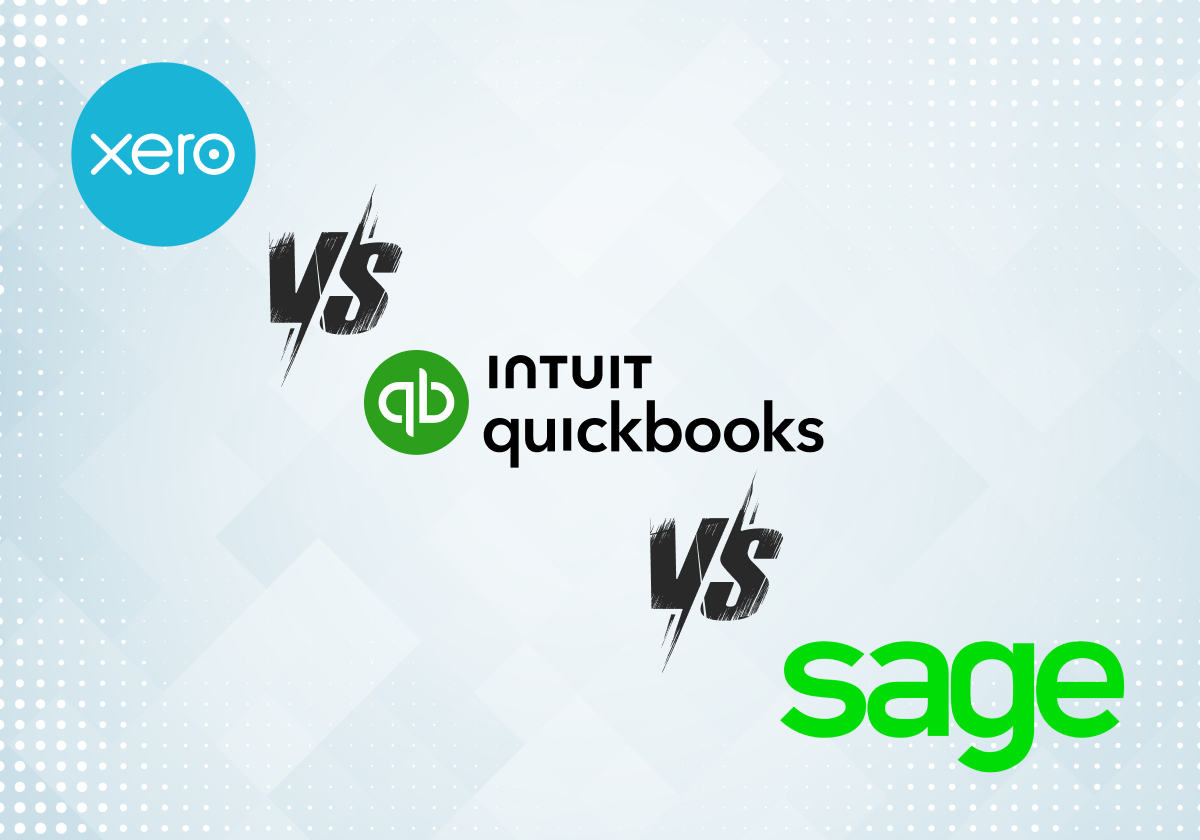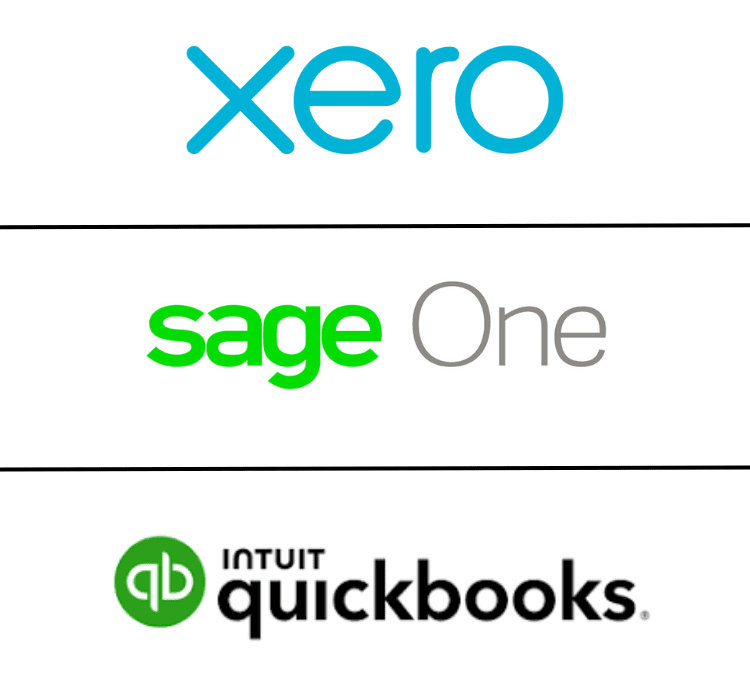Finding the right accounting software is crucial for any business. Xero, QuickBooks, and Sage are popular choices.
Choosing the best fit can be challenging. Each offers unique features tailored to different needs. Xero is known for its user-friendly interface. QuickBooks stands out with its robust features. Sage has a strong reputation in the industry. Understanding their differences can help you decide.
In this comparison, we will explore their strengths and weaknesses. By the end, you’ll know which software suits your business best. Whether you’re a small startup or a growing enterprise, this guide will help you make an informed choice. Let’s dive into the details and find the right accounting solution for you.
Features Comparison
Choosing the right accounting software can be challenging. Xero, QuickBooks, and Sage are popular options. Each offers unique features that cater to different business needs. In this section, we will compare their core accounting features and advanced tools and capabilities.
Core Accounting Features
Xero, QuickBooks, and Sage all provide essential accounting tools. These include invoicing, expense tracking, and bank reconciliation. Xero is known for its user-friendly interface. QuickBooks offers robust reporting features. Sage is preferred for its strong compliance tools.
Xero allows unlimited users. QuickBooks offers customizable templates. Sage provides detailed financial analysis. Each software supports multi-currency transactions. They also offer mobile apps for on-the-go access.
Advanced Tools And Capabilities
Each software also provides advanced features. Xero integrates well with third-party apps. QuickBooks has powerful payroll management. Sage includes comprehensive inventory management.
Xero supports project tracking. QuickBooks offers advanced budgeting tools. Sage provides in-depth cash flow forecasting. All three have strong data security measures. They also offer customer support through various channels.
User Experience
User experience is crucial when selecting accounting software. Business owners need a platform that is easy to use and offers reliable customer support. In this section, we’ll compare Xero, QuickBooks, and Sage based on user experience.
Ease Of Use
Xero offers a clean and intuitive interface. Users find it easy to navigate. The dashboard is straightforward, showing key financial information at a glance. Many users appreciate the simple layout and clear menu options.
QuickBooks is known for its user-friendly design. The setup process is quick and simple. The platform provides tutorials and guides, helping users get started quickly. The interface is modern, making it easy for non-accountants to use.
Sage provides a more traditional interface. It might seem complex at first. Users with accounting experience find it easier to navigate. Beginners might need some time to get used to the layout. Sage offers customization options, which is a plus for advanced users.
Customer Support
Xero offers 24/7 customer support through email and chat. Users often praise the quick response times. There are also extensive online resources, including tutorials and community forums.
QuickBooks provides various support options. Users can access phone support, live chat, and a comprehensive online help center. The QuickBooks community forum is active, allowing users to get answers from other users.
Sage offers phone and email support during business hours. There are online resources available, like tutorials and user guides. Some users find the support response times slower compared to Xero and QuickBooks.
Pricing And Plans
When deciding on accounting software, pricing and plans play a critical role. Xero, Quickbooks, and Sage offer various subscription options. Each has different levels to cater to diverse business needs. Understanding their pricing structures can help you make an informed choice.
Subscription Tiers
Xero offers three main subscription tiers: Early, Growing, and Established. The Early plan is ideal for small businesses. The Growing plan suits businesses that are expanding. The Established plan is for larger companies with complex needs.
QuickBooks has four subscription tiers: Simple Start, Essentials, Plus, and Advanced. Simple Start is for sole proprietors. Essentials offers additional features for small businesses. Plus is suitable for growing businesses with more needs. Advanced is for larger businesses requiring deeper functionalities.
Sage provides three primary subscription tiers: Accounting Start, Accounting Standard, and Accounting Plus. Accounting Start is for very small businesses. Accounting Standard suits growing small to medium businesses. Accounting Plus is for established businesses with more advanced needs.
Value For Money
Xero’s pricing starts at a low monthly fee for the Early plan. It offers good value for smaller businesses. The Growing and Established plans are reasonably priced. They offer more features as the business scales.
QuickBooks has a higher starting price than Xero but offers more features from the outset. The Essentials, Plus, and Advanced plans provide significant value. They cater to businesses that need more advanced accounting tools.
Sage’s plans are competitively priced. They offer good value for smaller and mid-sized businesses. The Accounting Start plan is very affordable. The higher-tier plans provide extensive features at a reasonable cost.

Integration And Compatibility
Choosing the right accounting software involves understanding its integration and compatibility. Xero, QuickBooks, and Sage offer different features in this aspect. Each has unique strengths and weaknesses. Let’s dive into their integration capabilities.
Third-party Apps
Xero supports over 800 third-party apps. These include CRM, inventory, and payroll systems. It allows businesses to customize their experience. You can easily connect tools you already use.
QuickBooks integrates with more than 650 apps. Popular integrations include PayPal, Shopify, and Square. This makes it versatile for e-commerce businesses. It offers a seamless experience with many platforms.
Sage offers fewer integrations compared to Xero and QuickBooks. It supports around 100 third-party apps. Most are essential for accounting and finance. This suits smaller businesses with basic needs.
Cross-platform Compatibility
Xero is available on various platforms. You can access it via web, Android, and iOS. This ensures you can work from anywhere. Real-time updates keep your data synchronized.
QuickBooks also excels in cross-platform compatibility. It is accessible on desktops, web browsers, and mobile devices. This provides flexibility for businesses on the go. Synchronization is fast and reliable.
Sage offers desktop and cloud-based options. Mobile apps are available for iOS and Android. It may not be as robust as Xero or QuickBooks. Yet, it provides essential features for small businesses.
Security And Compliance
Security and compliance are critical for businesses using accounting software. Ensuring data protection and regulatory compliance is essential. Xero, QuickBooks, and Sage offer robust features in these areas.
Data Protection
Xero employs advanced encryption for data security. It uses two-step authentication to protect user accounts. Data is stored in secure data centers. QuickBooks also takes data security seriously. It uses 128-bit SSL encryption. Regular security checks are performed to protect user data. Sage offers similar security measures. It uses encryption and secure data centers. User data is regularly backed up.
Regulatory Compliance
Xero complies with international data protection regulations. It adheres to GDPR and other local laws. This ensures user data is handled responsibly. QuickBooks also complies with global and local regulations. It follows GDPR and other relevant laws. This helps businesses meet their compliance needs. Sage is also committed to regulatory compliance. It follows GDPR and local data protection laws. This ensures businesses stay compliant.

Target Audience
Choosing the right accounting software can be tough. Different businesses need different tools. Xero, QuickBooks, and Sage all have unique features. But who are they best for? Let’s explore their target audience.
Small Businesses
Small businesses often need simple, cost-effective solutions. They may not have a large budget. They also may not have dedicated accounting staff.
- Xero is a great choice for small businesses. It offers ease of use and affordability. It is also cloud-based, which is convenient.
- QuickBooks is another good option. It provides many features at a reasonable price. It also has a user-friendly interface.
- Sage offers robust features but may be more complex. It might be better for slightly larger small businesses.
Large Enterprises
Large enterprises have different needs. They need powerful, scalable solutions. They also often have dedicated accounting teams.
- Xero can work for large enterprises but may lack some advanced features. It is better suited for smaller teams within large companies.
- QuickBooks offers advanced features, but it can become expensive. It is good for medium-sized enterprises looking to grow.
- Sage excels here. It provides comprehensive, scalable solutions. It also integrates well with other business systems.
Each of these accounting software solutions has its strengths. Small businesses might prefer Xero or QuickBooks. Large enterprises might lean towards Sage. Knowing your needs can help you choose the right one.
Pros And Cons
Choosing the right accounting software can be challenging. Xero, QuickBooks, and Sage are popular choices. Each has its strengths and weaknesses. Below, we explore the pros and cons of each software.
Advantages Of Each Software
Xero
- User-friendly interface: Easy to navigate, even for beginners.
- Cloud-based: Access your data from anywhere.
- Integration: Connects with over 800 apps.
- Real-time updates: Stay current with financial data.
QuickBooks
- Comprehensive features: Suitable for small to large businesses.
- Scalability: Grows with your business needs.
- Strong reporting: Detailed financial reports.
- Support: Extensive customer service.
Sage
- Robust security: Protects sensitive data.
- Industry-specific solutions: Tailored for various sectors.
- Customization: Flexible options for different business needs.
- Strong accounting features: Reliable for complex accounting tasks.
Disadvantages Of Each Software
Xero
- Learning curve: Can be steep for complex tasks.
- Limited phone support: May need to rely on online resources.
- Pricing: More expensive for larger businesses.
QuickBooks
- Cost: Higher pricing for advanced plans.
- Complexity: Can be overwhelming for small businesses.
- System performance: May slow down with large data volumes.
Sage
- User interface: Can feel outdated.
- Integration: Limited third-party app connections.
- Support: May lack timely responses.

Frequently Asked Questions
What Are The Main Differences Between Xero, Quickbooks, And Sage?
Xero, QuickBooks, and Sage differ in user interface, features, and pricing. Xero is best for small businesses. QuickBooks offers extensive integrations. Sage is strong in accounting.
Which Software Is Best For Small Businesses?
Xero is often considered best for small businesses. It is user-friendly and offers robust features. Affordable too.
Can Xero, Quickbooks, And Sage Integrate With Other Tools?
Yes, all three can integrate with many other tools. QuickBooks has the most integrations. Xero and Sage also support many.
Conclusion
Choosing the right accounting software is crucial. Xero, QuickBooks, and Sage each offer unique features. Xero is user-friendly and great for small businesses. QuickBooks excels with comprehensive tools. Sage provides robust options for larger companies. Consider your business needs and budget.
Each platform has strengths. Evaluate them carefully to find the best fit. Your choice impacts your financial management. Make an informed decision for your business’s success.
{ “@context”: “https://schema.org”, “@type”: “FAQPage”, “mainEntity”: [ { “@type”: “Question”, “name”: “What are the main differences between Xero, QuickBooks, and Sage?”, “acceptedAnswer”: { “@type”: “Answer”, “text”: “Xero, QuickBooks, and Sage differ in user interface, features, and pricing. Xero is best for small businesses. QuickBooks offers extensive integrations. Sage is strong in accounting.” } } , { “@type”: “Question”, “name”: “Which software is best for small businesses?”, “acceptedAnswer”: { “@type”: “Answer”, “text”: “Xero is often considered best for small businesses. It is user-friendly and offers robust features. Affordable too.” } } , { “@type”: “Question”, “name”: “Can Xero, QuickBooks, and Sage integrate with other tools?”, “acceptedAnswer”: { “@type”: “Answer”, “text”: “Yes, all three can integrate with many other tools. QuickBooks has the most integrations. Xero and Sage also support many.” } } ] }